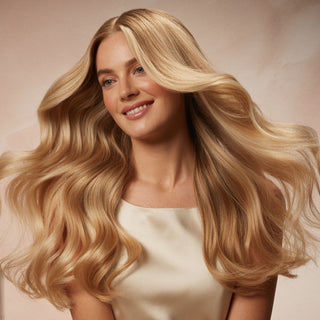Butterfly Haircut Variations: Who It Suits, Styling & Latest Trends
Moehair Blogs
-

Everything You Need to Know Before Going Green with Your Hair
Green hair is no longer just a bold experiment—it’s a refined, expressive color choice. From deep emeralds to edgy neons, this guide breaks down shades, dye types, prep, and care...
-

Permanent vs Semi Permanent Hair Color: What’s the Difference?
Confused between permanent vs semi permanent hair color? This guide explains how each works, how long they last, and which option is best for your hair goals.
-

Blue Black Hair Color: Meaning, Blue Black Hair Color Ideas & Care Tips
Blue black hair is a deep black shade with cool blue undertones that shine in the light. Discover ideas, care tips, and how to achieve the look.
-

How to Get Green Out of Hair: Detailed Guide
Green hair can happen from dye, chlorine, or swimming pools. This guide explains how to get green out of hair safely, what color cancels out green, and how to restore...
-

How Long Does Permanent Hair Dye Last?
Permanent hair dye is designed to last, but how long does it really stay vibrant? This guide explains how permanent hair color works, how it fades, and how to maintain...
-

Butterfly Cut vs Wolf Cut: What is the Difference?
Confused between butterfly cut and wolf cut? This easy guide explains the differences, hair types, face shapes, and which style suits you best.
-

Top Winter Hair Color Trends You’ll See Everywhere This Winter
Winter hair color trends for 2026 focus on depth, warmth, and refined shine. From wearable blondes to rich brunettes and soft berry tones, these seasonal shades are designed to look...
-

Why Is Everyone Opting the Butterfly Haircut With Bangs in 2026?
The butterfly haircut with bangs is set to define hair trends in 2026. With soft layers, airy volume, and face-framing movement, this versatile cut works beautifully on long hair, short...
-

Moehair Christmas Sale 2025: Holiday Gifts for Every Hair Lover
The Moehair Christmas Sale 2025 is here with big holiday savings, free gifts, and a BOGO deal on Voodoo hair colors. Discover the best Moehair combos and haircare gifts for...
-

Should You Use Shampoo Or Conditioner First?
Should you use shampoo or conditioner first? It depends on your hair type and the look you’re going for. Learn how reverse washing works and what happens if you skip...
-

The Ultimate Hair Care Routine to Follow for Every Hair Type
Discover the ultimate hair care routine customized for every hair type. From daily steps to home remedies, this guide covers everything you need for hair growth, thickness, and healthy, shiny...
-

Pink Hair Care Tips: How to Make Your Color Last
Dreaming of long-lasting pink hair? From washing hacks to heat protection, this ultimate guide shows you how to keep your pink locks vibrant and fresh for weeks. Perfect for anyone...
-

Why Glossy Brown is the Must-Have Hair Color of 2026
Glossy brown hair is the must-have color of 2026. From salon tips to at-home care, learn how to achieve and maintain this luxurious, effortless look inspired by Kim Kardashian’s hairstylist....
-

What Color Cancels Out Red: Best Hair Colors to Cover Red Hair
What color cancels out red? Red hair is bright and powerful, but changing it can be tricky. Explore simple ways to neutralize red tones in hair using clarifying shampoo, ash-based...
-

Black Friday Hair Care Deals 2025 | Moehair Sale
The biggest shopping event of the year is here! Moehair’s Black Friday Hair Care Deals 2025 bring you exclusive discounts on shampoos, conditioners, serums, and treatments. Don’t miss Moehair’s Cyber...
-

Can You Remove Hair Dye With Clarifying Shampoo?
Clarifying shampoo can help fade hair dye. Learn how to safely use it, the science behind color removal, and the best clarifying shampoos for healthy hair.
-

How to Pick the Right Hair Serum for Your Hair Type?
Choosing the right hair serum isn’t simply about shine. It’s about matching your serum to your hair’s texture, condition and needs. This guide shows you how to pick the best...
-
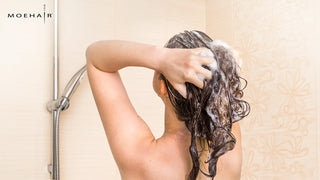
How Often Should You Use Hair Conditioner? A Complete Guide
Not sure how often to use a hair conditioner? Moehair USA breaks it down for every hair type & need.
-

How to Make Hair Color Last Longer On Your Hair?
Learn how to make hair color last longer with simple tips and color-safe products for shiny, healthy, color-treated hair that stays vibrant.
-
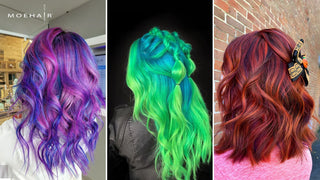
Top 10 Halloween Hair Color Ideas For Spooky Styles in 2025
Get Halloween-ready with 10 bold, temporary hair color ideas using Moehair’s semi-permanent dyes. Spooky, vibrant, and damage-free, they are perfect for any costume!
-
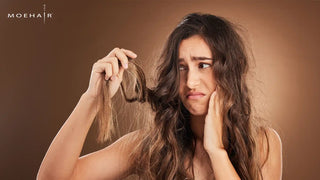
Is Sulfate Bad for Your Hair? Here Are the Facts and Myths
Table of contents What Are Sulfates and Why Are They Used in Shampoos? Are Sulfates Bad For Hair? When Should You Avoid Sulfates? Myths vs. Facts About Sulfates Benefits of...
-
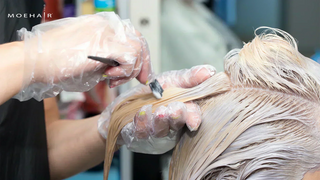
How to Bleach Hair Like a Professional (Without Damaging Them)
Table of contents What You’ll Need for At-Home Bleaching Step-by-Step: How to Bleach Your Hair at Home Things to Know Before Bleaching Hair Aftercare: How to Keep Bleached Hair Healthy...
-
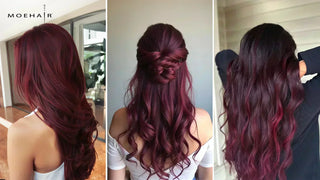
Top 15 Red Hair Color Ideas to Try for a Bold & Stunning Look
Table of contents Top 15 Shades of Red Hair You Must Try Light Auburn Mahogany Copper Burgundy Strawberry Blonde Raspberry Red Red Velvet Scarlet Red Black Cherry Cinnamon Red Rose...
-
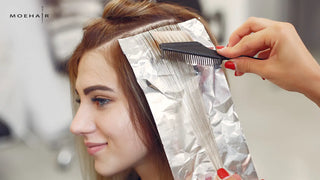
How Often Should You Apply Permanent Hair Coloring?
Wondering how often you can dye your hair with permanent hair color? Discover the safe timeline, touch-up tips to maintain your hair's health and vibrancy.










